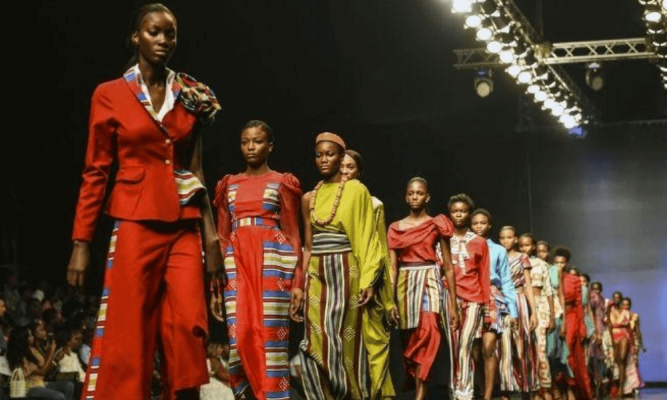The Nigerian fashion industry is poised for a transformation, driven by a concerted push for innovation and sustainability. Stakeholders, recognizing the immense potential of the sector, are advocating for a shift towards higher quality locally-made garments that can compete effectively in both African and global markets. This ambition took a tangible form with the unveiling of the Garment Innovation and Sustainable Production Hub in Lagos, a project spearheaded by the Association of Women in Fashion Tech (WIFT) in collaboration with the Central and Eastern European and West African Business Association and UN Women. This hub is designed to be a catalyst for change, equipping fashion entrepreneurs with the tools and resources they need to elevate their craft and contribute to a more sustainable and competitive industry.
The Garment Innovation and Sustainable Production Hub represents a significant step towards fostering collaboration and driving innovation within the Nigerian fashion landscape. By providing a shared workspace, the hub aims to facilitate the exchange of ideas, knowledge sharing, and the development of cutting-edge designs. This collaborative environment will empower designers to learn from each other, experiment with new techniques, and collectively raise the bar for Nigerian fashion. Beyond its function as a physical space, the hub also incorporates technological innovation, including a blockchain-based virtual try-on store, which showcases the integration of technology to enhance the customer experience and promote sustainable practices by reducing the need for physical samples. Furthermore, WIFT’s experimentation with banana fiber Asoke production underscores the commitment to exploring eco-friendly materials and processes, further solidifying the hub’s focus on sustainability.
The hub’s strategic importance is further amplified by the implementation of the African Continental Free Trade Area (AfCFTA). With increased trade liberalization across the continent, the need for Nigerian fashion products to meet higher quality standards becomes paramount. The hub addresses this directly by providing affordable access to production facilities, fostering skill development among local tailors, and offering accommodation for designers engaged in training or extended projects. Through these initiatives, the hub aims to equip Nigerian fashion entrepreneurs with the resources and expertise necessary to compete effectively within the larger African market. The emphasis on quality is crucial not only for economic success but also for establishing Nigerian fashion as a force to be reckoned with on the global stage.
The vision for the hub extends beyond simply improving the quality of garments. It is also about empowering women within the fashion industry and fostering a more sustainable and ethical production ecosystem. By providing training programs, such as boot camps, the hub aims to build capacity among women entrepreneurs, equipping them with the skills and knowledge necessary to thrive in a competitive market. This empowerment is seen as a key driver of economic growth and social development, with the understanding that when women are economically empowered, their families and communities benefit as well. The hub’s focus on sustainability is also evident in its promotion of locally sourced fabrics and dyes, reducing the reliance on imported materials and minimizing the environmental impact of production.
The support and recognition from international organizations like UN Women further validate the significance of the Garment Innovation and Sustainable Production Hub. The UN Women Representative to Nigeria and ECOWAS highlighted the substantial economic contribution of the fashion industry to Nigeria, emphasizing the vital role of women in driving this growth. The call for government support, particularly in terms of favorable policies and a curb on the influx of imported ready-to-wear garments, highlights the need for a collaborative approach between the public and private sectors to nurture the local fashion industry. This collaborative effort is essential to creating an environment where Nigerian designers can flourish and contribute meaningfully to the national economy.
The unveiling of the Garment Innovation and Sustainable Production Hub marks a pivotal moment for the Nigerian fashion industry. It represents a concerted effort to elevate the quality of locally-made garments, promote sustainable practices, and empower women entrepreneurs. The hub’s focus on innovation, collaboration, and skill development is poised to transform the sector, enabling Nigerian fashion to compete effectively on both the African and global stages. The call for government support and the recognition from international organizations underscore the importance of this initiative in driving economic growth and social development within Nigeria. With the right backing and continued dedication from stakeholders, the Nigerian fashion industry is poised for a bright and sustainable future.














